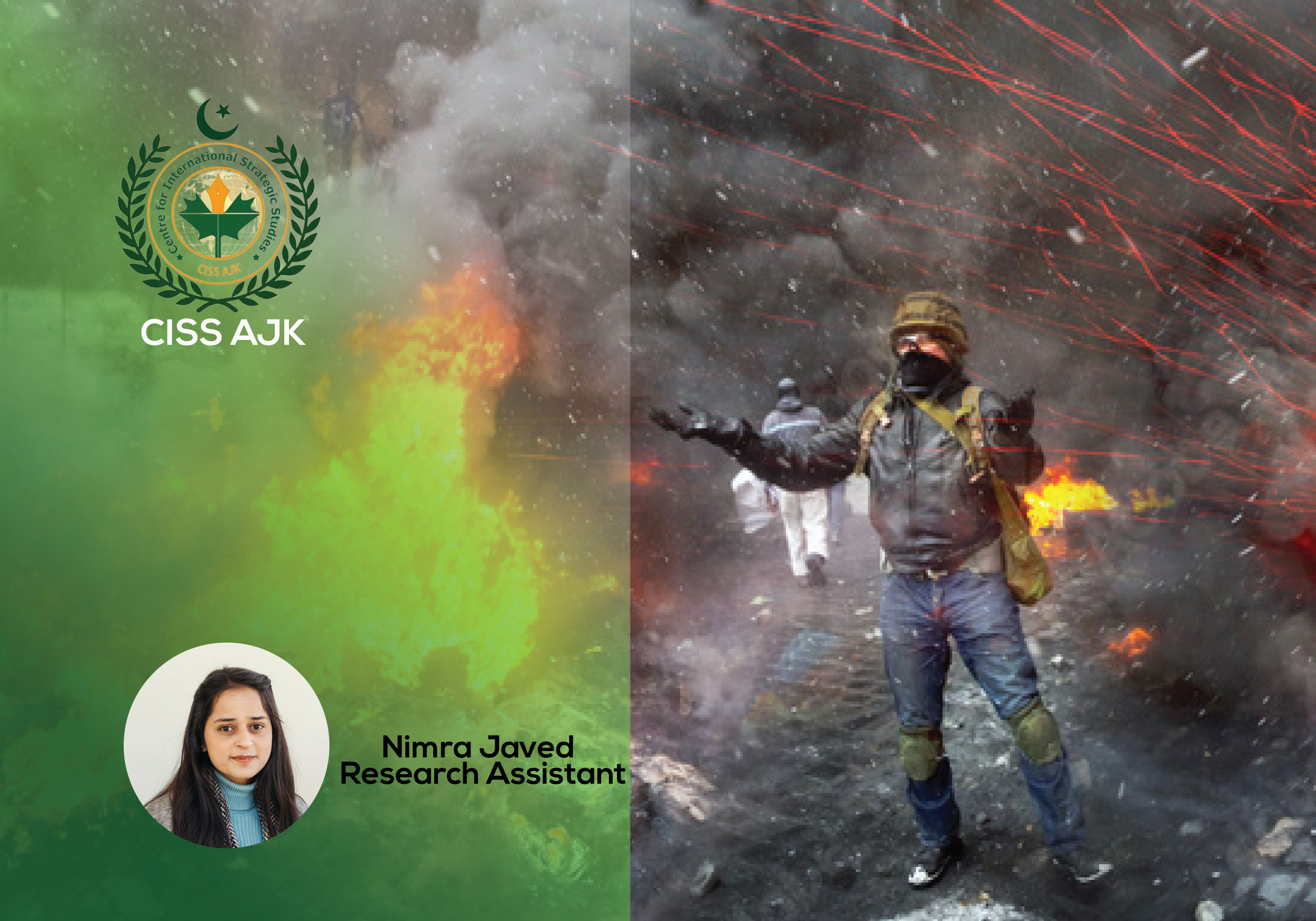REALISM in international cognations believes that the international system is predicated on anarchy.
It signifies there is nobody in the world that is going to bulwark you from international aggression if an attack transpires.
Therefore, countries should maximize their power to ascertain their survival. For the survival of a country, there are no weapons better than nuclear weapons.
It can be a spectacular implement of deterrence against a threat to survival. However, a few states in the world have nuclear weapons.
Ukraine is one of those states which has become the centre of world politics due to the Russian attack on her.
Russian attack on Ukraine and its decision to give up nuclear weapons have many edifications for Pakistan. Ukraine had the world’s third largest nuclear arsenal at its independence.
It became an independent state with the disintegration of the Soviet Union in 1991 and was regarded as the former Soviet Republic with the motive of holistically achieving economic prosperity and integration with Europe.
The US, UK and Russia concurred to provide Ukraine’s security in an accedence kenned as the Budapest Memorandum, and ultimately Ukraine gave up its nuclear weapons and decided to denuclearize its soil.
Ukraine officially acceded to NPT as a non-nuclear weapon state on Dec 5, 1994. There was a division of opinion at that time.
Ukrainian experts queried the sagacity of nuclear disarmament at that time, and today Ukraine has no way to engender or acquire the materials to build a bomb.
“The gist is, ‘We had the weapons, gave them up and now look what’s transpiring,’” said Mariana Budjeryn, a Ukraine specialist at Harvard University.
Ukraine gave up its nuclear arsenals just for a signed piece of paper, and today they are facing the worst results.
Some experts were in favour of this acquiescence as well. They argued that Ukraine would have faced many political and economic repercussions if it had not signed the acquiescence.
However, losing nuclear weapons also engendered the worst crisis for Ukraine. At the time of the Budapest Memorandum, the US and Russia agreed to provide security to the people of Ukraine; however, in the wake of the recent attack, Ukrainian people are not feeling secure.
Albeit the US and the European countries are providing weapons to Ukraine, they did not provide an army to bulwark Ukraine.
They also kept their fortification circumscribed to a few weapons because they did not optate to involve their armies.
It signifies that the concept of extended deterrence is, also, not a reliable tool. It proves the point that self-help is the best help in international relations. It highlights the paramountcy of Pakistan’s nuclear weapons.
This shows Pakistan that developing nuclear weapons was the most significant step for Pakistan’s security and the safety of its sovereignty.
It highlights the importance of nuclear weapons in establishing tranquillity and security in south Asia.
Ukraine additionally faced a country which is conventionally superior to it. Consequently, it was more facile for Russia in its calculations to assail Ukraine to achieve its national interest.
Russia orchestrated an operation in the commencement in which it envisioned occupying consequential places in Ukraine and coercing Ukraine to achieve its objective.
Although India is not conventionally superior to Pakistan as Russia was to Ukraine, India still has more power than Pakistan.
India adopted offensive doctrine such as Cold Start to expeditiously move its army and occupy consequential places to coerce Pakistan to achieve its national interests.
The reason India could not take any action against Pakistan was its nuclear weapons. India knows that in case of any misadventure, it can face the threat of nuclear war.
Consequently, despite belligerent comportment and a truculent stance, India could not pursue any action against Pakistan.
This also shows that the international community forefends its interest. Even in the case of the Russian attack on Ukraine, very few countries stood with Ukraine and condemned the attack.
Consequently, it is also a rational step for Pakistan to invest in its nuclear technology and ascertain full-spectrum deterrence in line with the policy of credible minimum deterrence.
Pakistan always evaded the arms race and followed the principle of credible minimum deterrence.
However, if India adopts incipient technologies and modernizes its nuclear weapons, then Pakistan should not hesitate to invest in its weapons and increment the nuclear weapons stockpile required for the minimum credible deterrence.
It will be a rational call for Pakistan primarily for three reasons: First, the conventional asymmetry between India and Pakistan is growing due to arm build-up on the Indian side, the nuclearization of the Indian Ocean region and India is building a bulwark shield.
All these factors show that Pakistan should learn from the Ukraine crisis that nuclear weapons are cardinal for its security, safety and sovereignty. Furthermore, Ukraine example has shown that the world does not come to help.
—The writer is a Researcher at CISS AJK and working on Nuclear Politics & Disarmament, Emerging Technologies and New Trends in Warfare.



